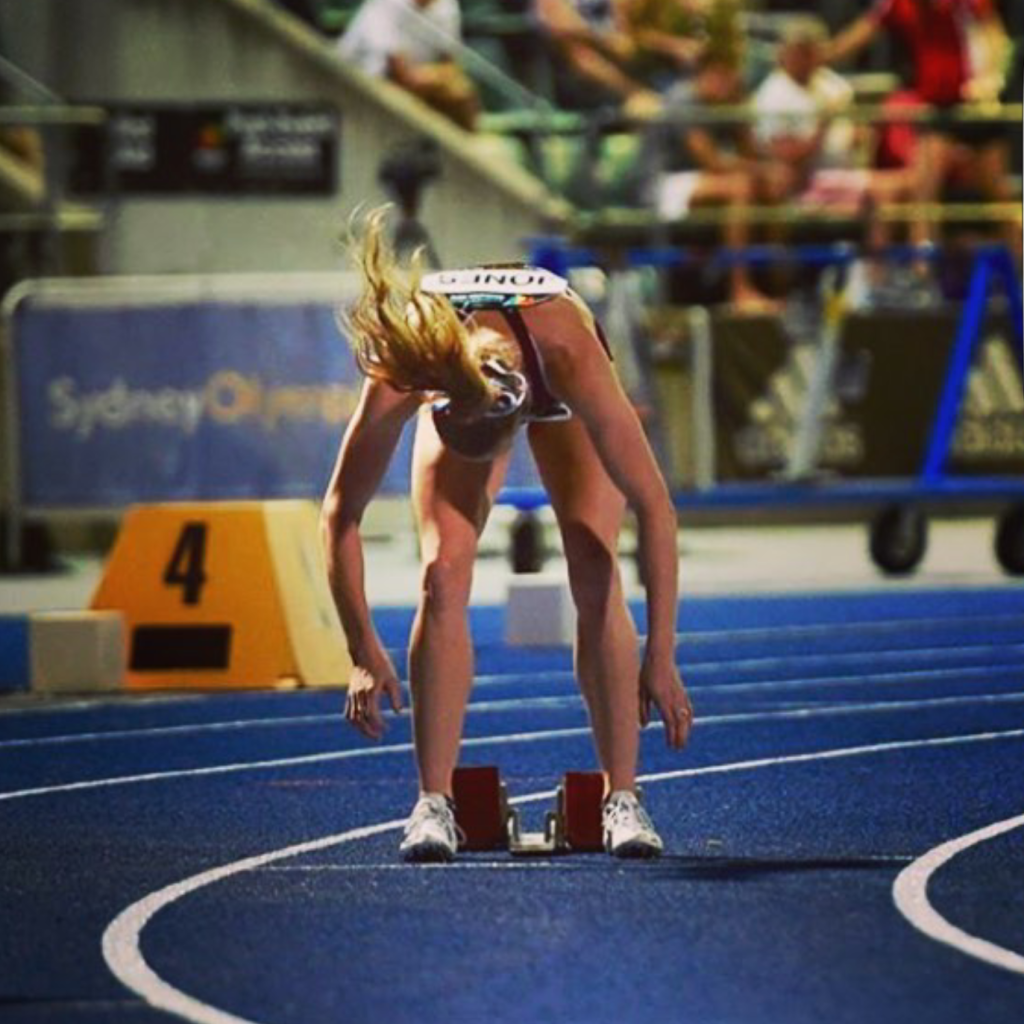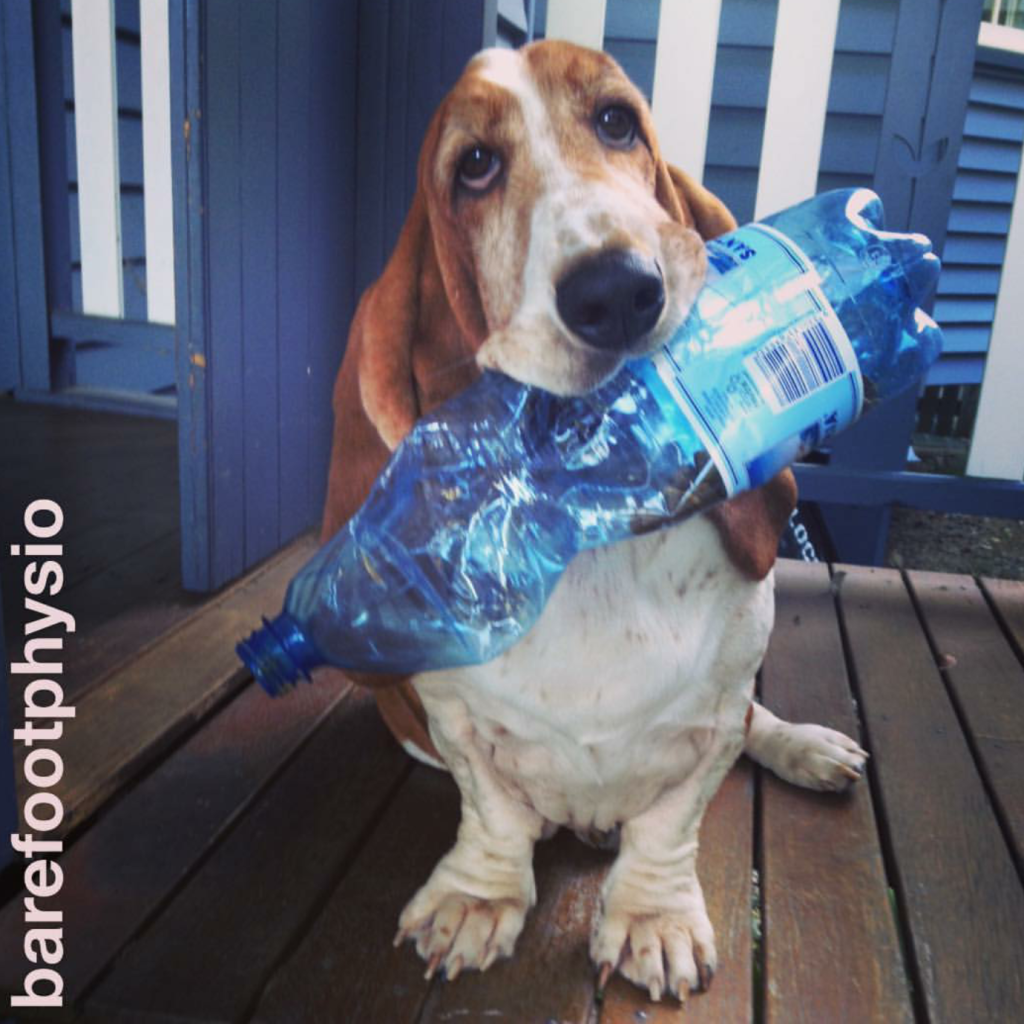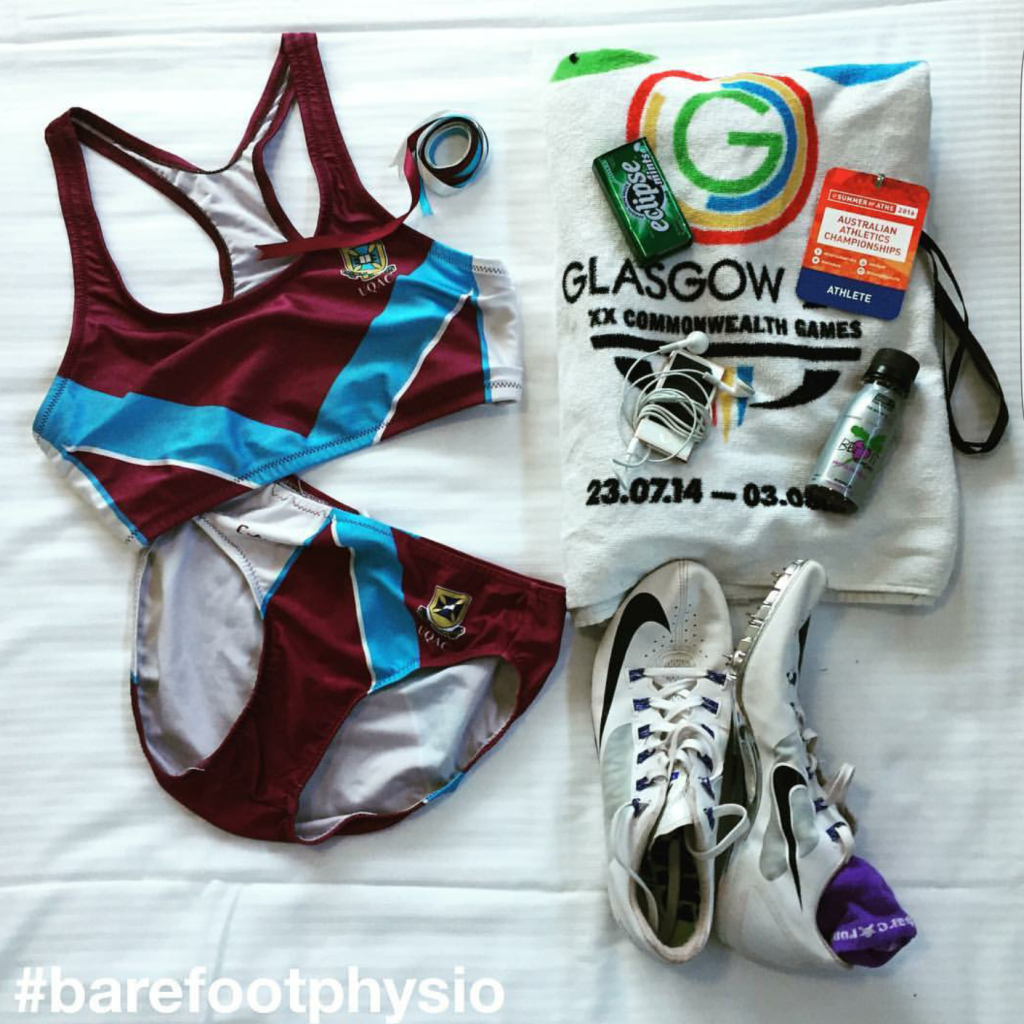Race day ready!
 Most people put a lot of time and effort into preparing their body for a goal race. This is great, however not having a plan for race day can mean you don’t run to your full potential and may end up feeling disappointed. That’s where these ‘top tips’ come in handy! As an eight-time Australian representative runner, I have done my fair share of ‘race-day’ preparation and have compiled my thoughts on how to have your best race possible. These are written from my perspective as a 400m runner, however they are applicable from shorter track races up to marathon.
Most people put a lot of time and effort into preparing their body for a goal race. This is great, however not having a plan for race day can mean you don’t run to your full potential and may end up feeling disappointed. That’s where these ‘top tips’ come in handy! As an eight-time Australian representative runner, I have done my fair share of ‘race-day’ preparation and have compiled my thoughts on how to have your best race possible. These are written from my perspective as a 400m runner, however they are applicable from shorter track races up to marathon.
- TaperYou need to ‘taper’. This means that the week leading into your race, your training should be lighter than normal. Depending on how much running you normally do and how far your goal race is, will determine how many days out you start your taper and how much you run during your taperDon’t do too little though. Just as a taper is important, doing nothing for a few days leading upto your race can make your legs feel ‘heavy’. It is often best to head out 1-2 days before your race and do a short, easy run (about 5 minutes if doing a 5km race), some gentle stretching and 3-5 x 50-100m runs just a bit faster than your intended racing pace
- NutritionWhile we have all heard of ‘carb loading’, it is often not necessary for races shorter than a half marathon, so no need to binge on pasta. If you think a carb loading is necessary for your race, it is best to consult a sport dietician to establish a protocol that is appropriate for you.What is more important, is eating healthy balanced meals for the week leading into your race. This continual input of nutrients will help your body be at its best come race day, and also minimise any negative effects if you are too nervous to eat on the day of competing. Most road races start early in the morning, so it is ideal to eat a good balanced meal the night before, with slightly more carbohydrates than usual. It is also a good idea to steer clear of any particularly strong flavours (eg garlic, chilli, curry) as these can upset the stomach with the added nerves of racing or be on your breathe the next morning which is not very pleasant!
On race day morning it is best to have a light meal that is predominantly carbohydrates as this is more quickly digested by the body and less likely to upset your stomach. Some suggestions are cereal with milk, toast with jam or honey or fruit with a small amount of yoghurt. If you are doing a half marathon or longer, it is likely you will need to take some fuel on board during your race. It is best to consult a sports dietician a few months beforehand regarding this.
Most of my races are in the afternoon or evening, so I generally have a chicken and salad sandwich on wholemeal bread 4 hours before racing and then a small serve of yoghurt and berries 2 hours before go-time.
 Hydration
Hydration
As with nutrition, it is important to be consciously hydrating for the week leading into your race as this will optimise your body’s function come race day and also avoid ‘over-hydrating’ the day before and spending all night in the bathroom. For 5km runs, it is often not necessary to take on fluid during your race. If you think you will need to drink during your race, it is a good idea to practice this in the lead up to ensure your stomach is comfortable with it- Sleep
Most people can get nervous in the lead up to a race and it is very normal not to sleep well the night before. There is a lot of evidence that a few nights of poor sleep does not negatively impact on performance, so long as you don’t get stressed about it! Trying to sleep well for the week leading up to your race will also help limit any negative effects of a poor night sleep
- Getting ready!
I usually find it is best to set out my race outfit, race number with safety pins and pre-packed bag (towel, music, warm clothes etc) the night before racing. This helps me stay calm as I am confident everything is already prepared. Then it is a matter of working my time backwards. Know what time your race starts and decide how much before it you want to get there, how long will it take to get there (including any road closures occurring for the course), how long will it take you to get ready and how long beforehand do you want to eat. This helps create an easy timeline for when you need to wake up, eat and leave to minimise stress.I suggest arriving at the race start at least half an hour before. Allow extra time if it is unfamiliar environment, you need to park or you are dropping your bag off to the baggage tent (check beforehand that your race has this option!) - Warm up
I recommend doing a warm up similar to the light session a few days before racing. A short, easy jog (only 1-2 minutes if doing a 5km), some gentle dynamic stretches and a few 50m runs at a faster pace. Give yourself time to do this (10-15 minutes), then 5 minutes to get to the start line ready to race! - Racing!
Racing should be fun! Even if your goal is just to finish- know that you have worked hard to get to that point and deserve to enjoy the experience. Smile and appreciate all the other people around you who are also working hard to accomplish their goals. Be proud of yourself, regardless of the outcome
If you would like my help or have specific race day preparation questions, feel free to book a session or send me an email






